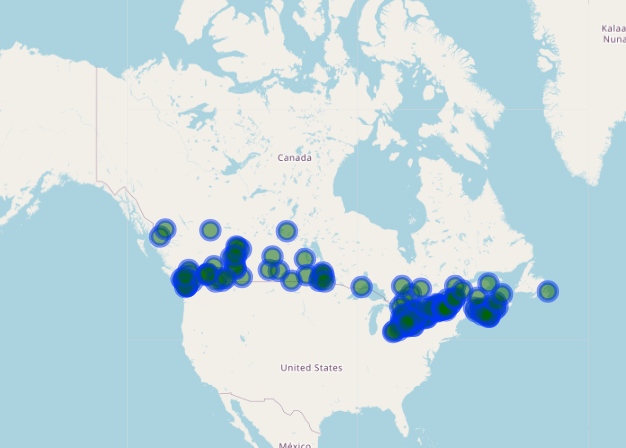
The Municipal Net-Zero Action Research Partnership (N-ZAP)was established to support Canadian municipalities in monitoring, measuring, and achieving their greenhouse gas (GHG) mitigation goals. N-ZAP is a partnership between the University of Waterloo, the Federation of Canadian Municipalities (FCM), ICLEI Canada, 11 other Canadian universities, nine other national organizations, and 15 municipal governments across Canada. The full list of N-ZAP partners is available on the project partners page on the N-ZAP website.
N-ZAP is composed of five working groups, bringing together academics, municipal practitioners, and national organizations. This dataset is an output of Working Group 1 whose objective is to determine the current state of climate action in Canadian municipalities, including the state of GHG emissions reduction target setting, climate action planning, intervention implementation, and systems for measuring and monitoring progress. For more information on N-ZAP visit our website.
This map shows the locations of the 178 Canadian municipalities who participated in the Municipal Net-Zero Action Research Partnership survey, and consented to having their results be made public.

An online survey was conducted in English and French from June to September 2023. The survey was open to all Canadian municipalities. We particularly targeted Canadian municipalities with a population over 10,000.
The survey consisted of two parts:
We received responses from 256 Canadian municipalities across 10 provinces, collectively representing approximately 70% of the Canadian population. The same survey will be conducted in 2027 to assess municipal local climate actions and their progress towards meeting their GHG emissions targets and the change over time.
Survey participants had the choice to disclose their Part 1 responses publicly. Of the 256 responses, 178 municipalities consented to have their responses to Part 1 of the survey made public. This dataset consists of those 178 responses (135 in English and 43 in French).
*this dataset is in English, though the responses are in their original language of submission.
The authors would like to thank the Municipal Net Zero Action Research Project (N-ZAP) Working Group 1 for their role in helping design the survey instrument used to collect data; Dr. Georges Tanguay (Université du Québec à Montréal), Dr. Laura Tozer (University of Toronto), Collin Neveroff (ICLEI Canada), Taha Attiah (City of Revelstoke), Ian Desserault (Ville de Laval). We would also like to thank Ashley Hobbs, Anamika Gangadharan, Haoran Xu, and Kanako Yoshizumi (University of Waterloo) for their contributions to data collection.
We also thank Greg Vey, Waleed Qaisar Ashfaq, and Simon Glauser from the Waterloo Climate Institute for the development of this database, homepage, and their contributions towards data visualization.
Lastly, we would like to acknowledge our funders, the Government of Canada, Mitacs Globalink, and Mitacs Accelerate for their contributions.
This dataset is part of the Municipal Net-Zero Action Research Partnership (N-ZAP), co-led by Dr. Amelia Clarke from the University of Waterloo, ICLEI-Canada, and FCM's Green Municipal Fund.
How to cite this dataset:
MacDonald. A., Telfer. L., Clarke. A., Meaney. M., Giordano A., Linton S., Zhou. Z. (2024). Municipal Net-Zero Action Research Partnership: Current state of local climate action in Canadian municipalities - part 1 survey responses. [data set] University of Waterloo. https://waterlooclimatedata.ca/nzap/
Interested in getting involved? N-ZAP is recruiting 250 Canadian municipalities to participate as pilot cities. By participating in N-ZAP, your municipality will: